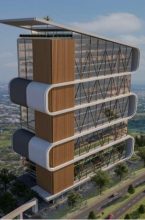Redefining the Two-Nation Theory: From Hindu-Muslim Divide to Rich-Poor Divide in Pakistan

By Nasir Aijaz
The AsiaN Representative
KARACHI, SINDH: When the All-India Muslim League launched its campaign to create a separate homeland for Muslims of the Indian subcontinent, the justification was built upon the Two-Nation Theory- a doctrine asserting that Hindus and Muslims were two separate nations.
It was argued that these so-called “nations” had different religions, languages, cultures, social customs, and jurisprudence, and thus could not coexist peacefully in a single state. This ideological foundation, popularized by Muhammad Ali Jinnah and his contemporaries, led to the formation of Pakistan in 1947.
But more than seven decades later, a new narrative is gaining ground—one that challenges the original premise of the Two-Nation Theory and offers an alternative interpretation that resonates more powerfully with the lived realities of the common people in Pakistan today.
In recent years, particularly through the rise of social media, a growing number of Pakistanis have begun to openly criticize the so-called ‘foundational narrative’ of the country. A satirical yet poignant post that went viral not long ago bluntly stated: “Pakistan was not created on the basis of Hindu and Muslim; it was actually created on the basis of Rich and Poor.” This post did not arise in a vacuum—it reflected the collective frustration of a population crushed under economic inequality, inflation, and exploitative governance.

More people now believe that the ruling elite never truly intended to create a welfare state for the marginalized Muslim masses. Instead, many argue, the movement for Pakistan was manipulated by the aristocracy—landlords, feudal lords, industrialists, and bureaucrats—who saw in it an opportunity to establish their own kingdom of wealth and privilege.
This, in fact, is considered as the ‘Exploitative State, which is a Paradise for the Elite’. In the past few months, social media has witnessed an explosion of critical content, memes, caricatures, and hashtag movements in response to the ever-growing economic burden on the poor and middle classes.
At the same time, state-sponsored luxuries continue unabated for the ruling elite. Some of the most damning revelations and points of criticism include: 600% salary increase for parliamentarians, ministers, and judges, including lifetime privileges like free electricity, gas, fuel, luxury vehicles, and state-sponsored accommodation; over 1,000 corporate companies were granted complete tax exemptions in the federal budget; Rs.80 million allocated just for maintenance of the Prime Minister’s washroom; billions of rupees annually spent on “refreshments” (tea and biscuits) at the President’s House, PM House, and all provincial Chief Ministers’ residences.
All such expenditures are covered through foreign loans, including those from the International Monetary Fund (IMF), putting the burden of repayment on the shoulders of the poor.

Despite these luxuries enjoyed by the ruling class, the ground reality for ordinary Pakistanis is devastating: Over 40% of Pakistan’s population—approximately 100 million people—live below the poverty line, with per capita income for poor families falling below $2 a day. Unemployment and underemployment are rampant, particularly among youth, leading to mass hopelessness and mental health crises.
Electricity bills have become unaffordable, with a convoluted tariff structure where the poor pay disproportionately higher rates due to slab-based billing, cross-subsidies, and surcharges. Taxes on essential items—such as flour, sugar, electricity, gas, and petrol—continue to increase. Even a day’s wages are often insufficient to cover a week’s utility bills.
Meanwhile, the elite evade taxes through legal loopholes or are simply exempted by budgetary privileges.
One of the most painful issues for low-income families is the illogical structure of electricity tariffs. For instance: Households that use just a few units over the lowest slab limit suddenly find themselves pushed into a higher slab with double or even triple rates, punishing minor consumption increases.
The fixed charges, fuel adjustment surcharges, and general sales tax make up more than 50% of the total bill in many cases. The system does not account for seasonal variations or energy-saving efforts by households, making energy conservation economically unrewarding.

Elite zones and government housing colonies often enjoy uninterrupted subsidized electricity, while poor neighborhoods suffer from daily load shedding and inflated bills.This growing disparity between the elite and the impoverished has led many Pakistanis to reflect: What was the true purpose of Pakistan? And more importantly: Who has benefited from it?
The sarcastic posts, satirical hashtags, and memes on platforms like Twitter, Facebook, and TikTok are not merely jokes—they are a form of digital resistance.They reflect a serious, rising political consciousness among the masses who are now questioning: If Pakistan was created for Muslims, why are Muslim poor still begging on streets? If the state was meant to serve the people, why are its rulers living lives of royalty funded by loans that the people must repay? If justice and equality were the promises of independence, why is the elite class exempted from accountability while the poor are punished for survival?
Pakistan today is divided along class lines. The simulated Two-Nation Theory that once separated Hindus and Muslims is being reinterpreted by the people as a Rich-Poor Theory—a divide that has become more real, more visible, and more destructive than any religious division ever was.

In view of the above facts, one may conclude that the real crisis is not of ideology, but of economic justice and equitable governance. The people of Pakistan, especially the youth, are no longer blind followers of so-called ‘historical narratives’. They are demanding accountability, transparency, and a new social contract—one that doesn’t sacrifice their dignity to fund elite luxury.
Until such change takes root, the dream of Pakistan will remain unfulfilled—not because of any external enemy, but because of the internal betrayal of the very ideals it claimed to uphold.




